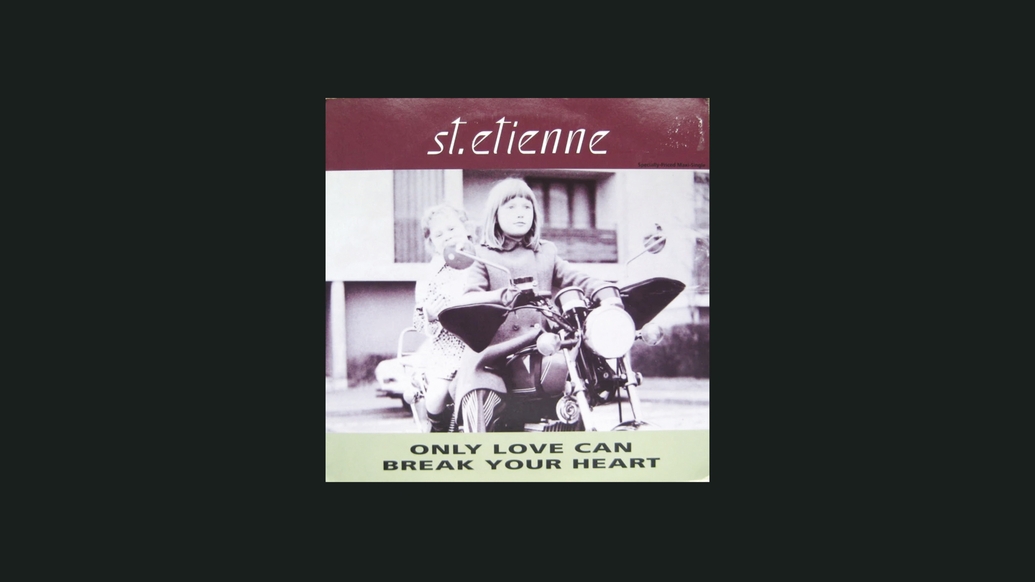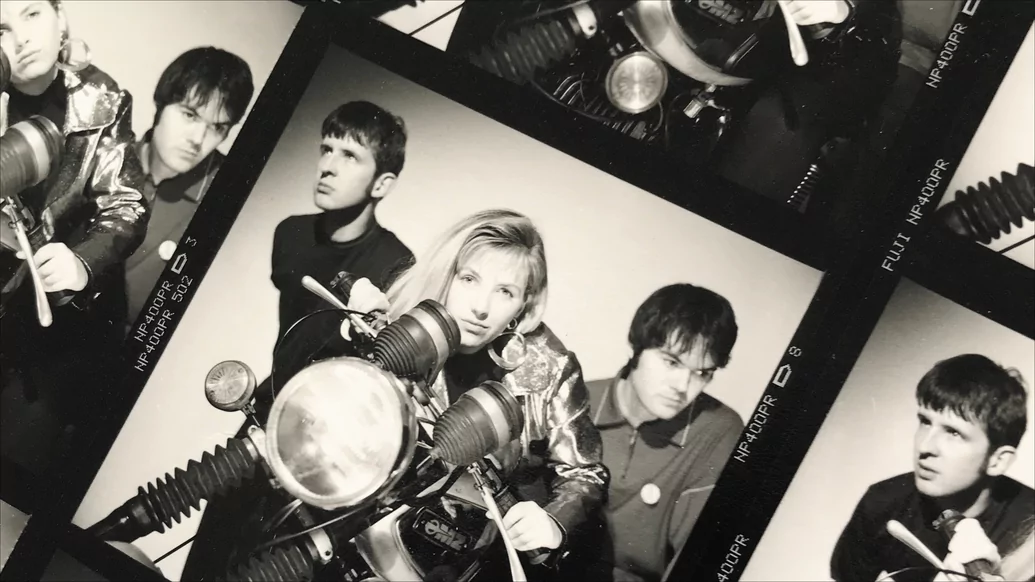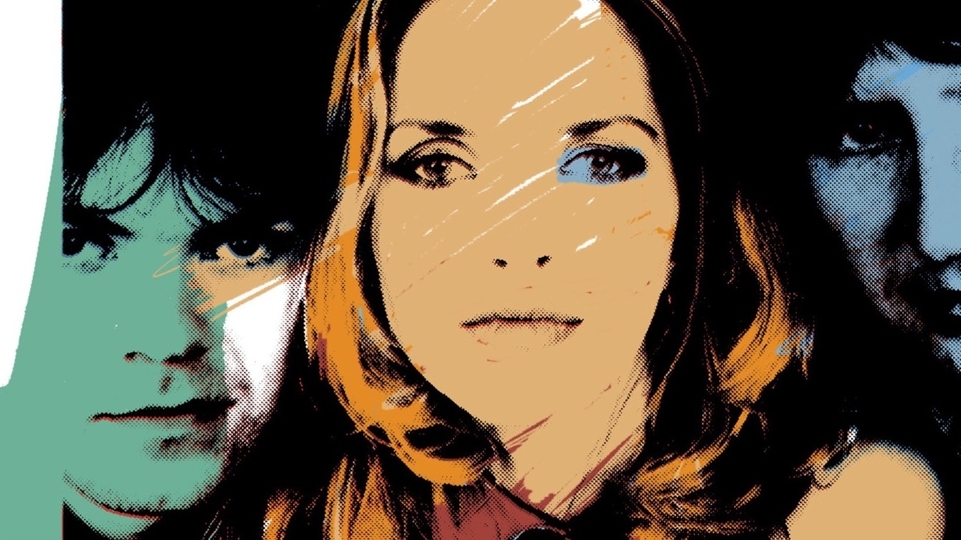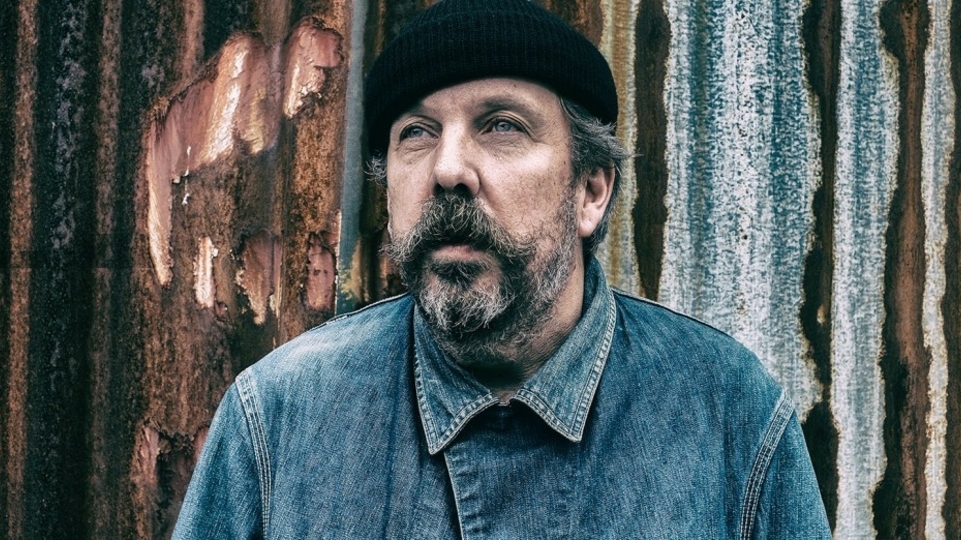
How Saint Etienne's 'Only Love Can Break Your Heart' united the indie and dance worlds
It wasn’t their song and they didn’t play any instruments, but Saint Etienne’s Balearic classic ‘Only Love Can Break Your Heart’ caught the tailwind of the Summer Of Love at the turn of the 1990s and united the indie and dance worlds. Ben Osborne catches up with the band to hear its story
In a period when the divide between the UK’s club scene and indie kids was as wide as it was bitter, Saint Etienne managed to win an army of fans on all sides of the divide. Band members Bob Stanley, Sarah Cracknell and Pete Wiggs put this down to a shared musical eclecticism, nurtured in an era where the BBC’s weekly Top Of The Pops show acted as the inspirational springboard for Britain’s musical youth.
“That was the first time I thought, ‘I want to be part of that’,” remembers Bob of his early TV viewing. “I had a quiff and wore a duffle coat, so I didn’t look like a soul boy, but always loved Northern soul, Motown, Philly soul. I was listening to a lot of indie stuff and then heard acid and house music — my tastes were across the board.”
Bob Stanley and Pete Wiggs are life-long friends, who helped develop each other’s musical knowledge: “I was in a pram and Bob probably in a pushchair (he’s 18 months older) when we met,” says Pete. “Our mums got talking at a butcher’s shop. The first records I bought were film related — Bond, Star Wars and the like — and when I went to Bob’s as a little kid he’d play me novelty records to get me into music.”
“We’d go out and buy different records and then go around to each other’s houses and listen to them,” adds Bob.
Despite their early interests, the idea of creating their own music only occurred when they first heard house music. “Neither of us learned to play an instrument; we never thought we’d be able to make music,” says Bob. “It was only when house music came along, and sampling made us think we could do something. Bomb The Bass and S-Express were clearly built from samples, and I had a big record collection and lots of ideas, so that was the beginning of it.”
Bob and Pete started experimenting with the rudimentary equipment they’d acquired. “We messed around with a Korg MS1 that Bob bought and twin cassettes I had,” remembers Pete. “And attempted to make an acid house record, having borrowed a TB-303 from Richard Norris [from The Grid], and we spent most of our short studio session trying to make the 303 work.”
“It was pretty rotten,” Bob laughs. But through this adventure the pair connected with Ian Catts, who ran a small studio and would go on to become Saint Etienne’s in-house engineer.
“We got on very well with Ian,” says Bob. “Neither of us could play anything at all in those days. Pete is a competent musician today, but at that point neither of us could do anything. So we were entirely reliant on someone with technical know-how and musical ability — and Ian was a multi instrumentalist.
“It was a basic studio, but the gear he had was nice and all we needed,” Bob continues. “There was very little on ‘Only Love Can Break Your Heart’... four or five tracks; bass, drums, keyboards, vocals.”
The guys began to hone their sound, and, taking their lead from house music, started inviting vocalists in to guest on their productions. Not being musicians, they confined themselves to cover versions, raiding their records for inspiration.
Doing covers might have been a necessity, but their choice of song and the treatment they gave ‘Only Love’ was expertly timed. “I was writing for Melody Maker and was aware that things were going on,” explains Bob. “It felt like you could do something between [indie and dance] — house and techno production and an indie record over the top. It wasn’t really being done at that point, and soon after there was an avalanche of it. It was thought out in that respect. We weren’t suffering artists. It was more like, ‘If someone did that then it might have a chance of taking off"...”

“Me and Bob were going through a Neil Young phase at the time,” recalls Pete. “Having previously not heard much, we were toying with doing ‘Ambulance Blues’ but settled in the end on ‘Only Love’, because we thought it could be changed by making it 4/4.”
“‘Ambulance Blues’ would have been lot different,” adds Bob. “But it was the cyclical nature of ‘Only Love’, it suited dance music. I remember Shaun Ryder doing a version of Donovan’s ‘Colours’ at around the same time. That made us think you could make a dance record out of a Neil Young song. Psychic TV had already done a version of it actually, which was quite droney. But looking back, it was quite a well-known song to cover. Normally we’d do quite obscure songs.”
HEAVENLY
The guys got to work in the studio with Ian, and invited musical friends in to add instruments and vocals to the mix. “Harvey Williams of Another Sunny Day came in to play bass and had to drop the tuning to get the low notes,” recalls Pete. “Ian recorded to 8-track quarter-inch tape, with strings and piano coming from a Korg M1 and Emu Emulator III, with loops off the Akai S1000. It all took shape pretty quickly. I think Ian was using Cubase on an Atari or an early Mac, but with no automation, so there was lots of live reverb and effects splashes.”
Completing the song by inviting Faith Over Reason's Moira Lambert to do the vocals, they set about finding a home for ‘Only Love’. Through journalism, Bob knew Jeff Barrett, a press agent and well-connected taste-maker. “He was someone whose taste I trusted, so I asked if we could meet in a pub and play him something,” says Bob.
They met in the Bush Ranger in Shepherd’s Bush, west London. “He sat there listening on his walkman for four-and-a-half minutes, which seemed like forever,” Bob recalls. “Then he said, ‘I’m starting a label called Heavenly, can I put this out?’ We didn’t expect that reaction at all.”
“Bob just thought he’d give us an honest opinion of the tracks we’d recorded,” says Pete. “We didn’t know he was about to launch Heavenly.”

Heavenly and Saint Etienne’s release would become Jeff’s breakthrough, growing into a movement that would, amongst other things, launch the Chemical Brothers and The Social venue in London. Soon, Jeff got hold of Andrew Weatherall, who he’d also recently connected with Primal Scream, and asked him to do a remix. “I was well aware of who he was, but it was Jeff’s idea to get him to do the remix. He got everyone really excited about ‘Only Love’,” recalls Bob.
Weatherall dubbed out the beats and bass on his mix, turning a Balearic classic into an early chill-out classic — cool and deadly, you might say. “Weatherall had already mixed Happy Mondays,” says Pete. “So we knew it was a coup. I thought the mix was great, but remember being slightly ‘nose out of joint’ when people said they preferred it to the original, ha ha.”
The response to ‘Only Love’ was immediate. “We got into The Face and i-D,” says Bob. “NME and Melody Maker didn’t do much dance coverage, but it got small reviews. Nicky Campbell, on Radio 2, said it was a travesty... we were happy with that.”
“A lot of people loved it, and we were blown away that it seemed to go down well with different groups of people,” says Pete. “Some hated it though — one radio DJ broke it in half live on air. But we were genuinely big fans of Neil Young,” says Bob.
Meanwhile, Sarah Cracknell had been working the London gig circuit, having joined her first band aged 15. “It happened in a pub,” she recalls. “Someone said this guy needed a singer, and suddenly these words came out of my mouth: ‘Yeah, I can do that’. I couldn’t at all!”
Having joined the band, she ran-off with the bass player to form a duo. But, despite a successful stint on the circuit, she eventually left. “I got fed-up with not getting a record deal. We put a record out ourselves, but that was it. So I went to drama school.” She started getting parts in fringe productions and preparing for a career in acting. “But just as I thought, ‘Right, I’m an actress now’, I met Bob and Pete,” she laughs.

They didn’t know each other, but Sarah had grown-up in Windsor and knew Weatherall. And she was a mate of Bob’s girlfriend, who knew Bob was looking for someone to sing on ‘Nothing Can Stop Us’. “So I met Bob and Pete and sang for them, but I didn’t know if anything was going to happen after...” recalls Sarah.
“We just got on really well,” says Bob. “We shared references and gelled really well. We had already written ‘Spring’ and ‘Can’t Sleep’, and I remember thinking Sarah’s voice would sit well on them. But we were still thinking it was going to be me and Pete with lots of different guest singers.”
FOXBASE ALPHA
After they recorded ‘Nothing Can Stop Us’, Jeff Barrett suggested they start doing an album. “It just ended-up making sense doing the whole album with Sarah,” says Bob. “So we started writing more songs together. It was serendipity. Jeff put a little money our way, we went into the studio, and we just carried on recording until we had enough stuff to fill an album.” He smiles. “There was no deeper thought to ‘Foxbase Alpha’ than that.”
“I didn’t want to throw my weight around,” says Sarah of their writing partnership. “I like things to evolve naturally. It was funny working with them in the studio when I didn’t really know them. They had in-jokes and would be sniggering away in the corner, but they never made me feel paranoid and the songwriting between us evolved naturally.”
The ‘Foxbase Alpha’ album saw the three of them plunder their early influences, in what Bob calls an include everything, “kitchen sink” approach. This saw film resurface as an influence: “We’re all into films and film soundtracks, so I suppose that has rubbed off. When thinking of lyrics we often imagine them as filmic vignettes,” says Pete.
“Pete especially is a film nut,” says Bob. “Which is how you end up with things like the dialogue from the House Of Games on there — influences like the soundtrack from Head, The Monkees film, which had the songs linked by dialogue. That’s what we thought albums should sound like — rather than just songs. And the music is ridiculously varied. Some of it is very obviously Detroit techno, some of it has Four Tops samples, like cod-Motown. It’s all over the place.”
The LP ended up being nominated for the Mercury Music Prize. “It was all a bit of whirlwind really,” says Sarah. “I guess it was a surprise, but I was very excited. The fact I actually appeared on the album is exciting — and at that point we had no idea if we’d make another one.”
Some three decades later, the trio have just released their tenth album and gone back entirely to sample-based music. “The initial idea was we were going to do a fan club record, messing about with samples,” Bob explains. “And there’s a lot of recent chillwave stuff I’ve been really liking. So I started messing with Pete over the lockdown.”
“The new album is very sample-based, as were our first two records,” says Pete. “But this album has more of a concept than ‘Foxbase Alpha’. We’re trying to create an approximation of the process of memory, focusing on the late ‘90s. It’s a period that’s referenced in a lot of contemporary music, much like we referenced the ’60s and ’70s when we started out. There’s not really any songs on it (in the traditional sense) — it’s more hypnotic, dream-like.”
“And Sarah started writing lyrics over the top of what we’d done,” says Bob. “We had thought it was only going to be heard by a couple of hundred people, and now it’s become a full album release.”

